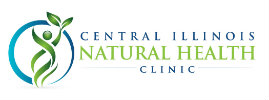As a doctor of naturopathic medicine, I have years of experience and training to respect the vis medicatrix naturae, or healing power of nature. This is foundational to our approach to health. I also have a background in science, and know that it is important to examine natural methods of health care to see if they are valid and effective.
That is why (though it might be dangerous to step on some toes) I like to clarify common misperceptions: My goal is to help patients be as healthy as possible, not to be wedded to a particular idea. Therefore, over the next few articles, I will present five common myths I often encounter, in no particular order.
Myth #1: Policosanol is a good alternative to cholesterol-lowering medication.
Policosanol is an extract of the sugar cane plant that made big news about ten years ago, with studies showing it was very effective at lowering blood cholesterol levels (1). The nutritional supplement industry responded with a deluge of policosanol products. However, much of that early research was conducted in Cuba, the source of the sugar cane–the raw material for policosanol production. Follow-up studies conducted on larger populations, showed little to no clinically significant cholesterol-lowering effects of policosanol (2, 3). Even though this well-designed research was published in 2006, policosanol sales continue to this day. More recent research from 2011 (4) found that even a form of policosanol modified to make it better absorbed from the gastrointestinal tract failed to make a significant dent in cholesterol levels. Some recent studies showing benefits used policosanol in combination with red yeast rice and berberine, two natural compounds that have been proven time and again to be effective in lowering cholesterol. It’s highly likely in these studies that the policosanol could have been left out, without affecting the results.
With all this evidence against policosanol, why are sales still so brisk today? Well, in the midst of bashing the evil of Big Pharma companies, we sometimes forget that supplement companies are businesses, too, driven by market forces. As long as there’s a demand for policosanol (based on those biased studies from 10-15 years ago), they’ll keep selling it. Sorry, folks–supplement companies are not selfless crusaders for health; they’re driven by the profit motive. It’s the American way.
I stopped recommending policosanol in 2006, in favor of much more effective treatments. I also like to remind patients that high cholesterol is not a disease; it’s a risk factor for cardiovascular disease (CVD). I put the emphasis on lifestyle factors for CVD prevention, and look at modifying other risk factors too (such as high-sensitivity C-reactive protein and blood levels of vitamin D).
Next Time: Cinnamon for blood sugar control
1. Policosanol: a new treatment for cardiovascular disease? Altern Med Rev. 2002 Jun;7(3):203-17.

